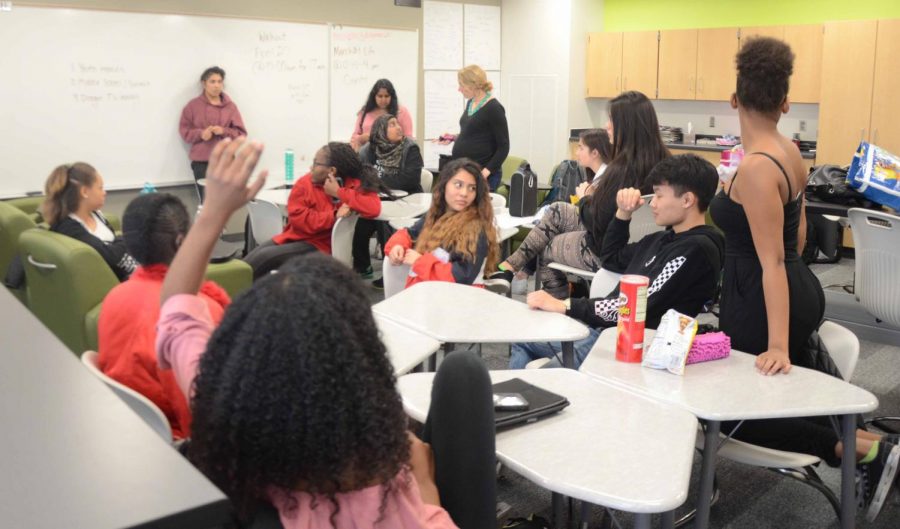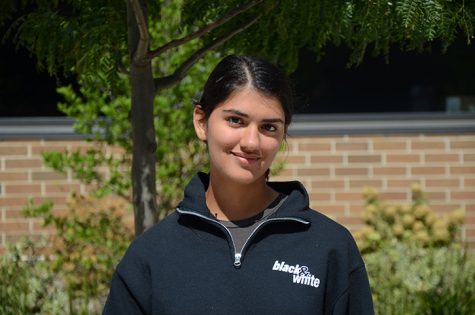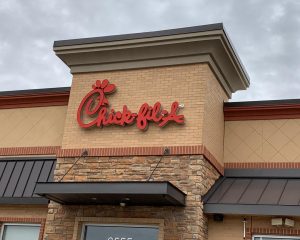C.O.R.E. for creating change
The Community Outreach Committee is discussing how to reach students of the middle and elementary schools. The members decided to contact administration and discuss creating Allies, Awareness, Acceptance, and how to answer the question of ‘what are you’.
April 11, 2018
Students are banding together in the newly formed group Community of Racial Equality for Advancement or C.O.R.E. to bring up thought-provoking issues and create an area for students of all racial background to promote equality. The group is led by students Obsee Abbajabal ’19, Jimmy Le ’18 and Parul Srivastava ’19 who start each meeting off talking about “highs and lows.” Every member shares one thing about their week that was a high point, and one that was a low point.
C.O.R.E. leaders have been working to give members opportunities in leadership, work, study, and all around success in what members are wanting to do. “We just want to provide a club, a safe space for people to prosper,” Srivastava said.
Currently, the club is focusing on building teamwork and creating sub-groups. “We’re going to start looking for people who would be able to inspire and give us those opportunities,” Srivastava said.
Srivastava wants the speaker to meet with club members so they can achieve their goals.
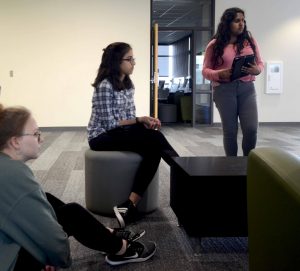
The C.O.R.E. committee for advertising meets to figure out the best ways to promote C.O.R.E. in the High School. Most of their self promotion had been through word of mouth and daily announcements. They are planning to put up flyers on windows to avoid the school regulation restricting student work in the hallways.
Some of the topics will include building resumes and writing college applications. Another goal of the club is to provide leadership opportunities to club members. By having them in a club setting, Srivastava believes there will be less competition and will give students a starting point for leadership.
At the first club meeting the leaders sent out a survey to see what members were interested in and what their skills are. The survey asked what sort of events students want to hold. They also asked which students would be willing to transport other students during extracurricular activities. “The students that we are trying to reach out to are the people who have to catch the bus every day and can’t participate in any extracurricular activities,” Srivastava said.
The group has a discussion topic every meeting called Discourse where they talk about racial issues in the community and the nation. One such topic they discussed was the H&M situation where a poorly thought out ad displayed an African American boy wearing a shirt saying “Coolest Monkey in the Jungle” displayed with a similar hoodie worn by a white child saying “Survival Expert” with a picture of a tiger. They also talked about Black Panther and different aspects of the movie in addition to the reactions of people from all ethnic backgrounds.
The group is planning to have different days to express their cultures through arts, fashion, music, dance and food nights. One idea from a student was for everyone to wear clothes from their culture in school to promote diversity and acceptance. The student who brought up this idea remembered wearing an Indian outfit to school one day and felt ostracized because of people’s reactions to her clothes.
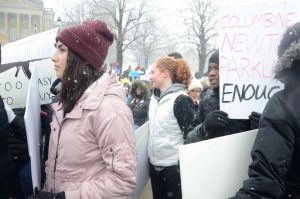
Anjali Dhawan ’19 marches at the March for our Lives rally with C.O.R.E. members. A large group of C.O.R.E. members decided to meet up before the march and rally for gun regulations in response to the recent school shootings.
The leaders are also interested in community outreach programs to connect with other areas such as the elementary and middle schools. There is a committee that is dedicated to outreach. “We want to expand [equity] to other schools and to the communities and bigger projects that help our communities,” Srivastava said. “We really want to utilize the skills we have in this unique group to develop projects that are going to help the community.”
Members have been dedicated to reaching out to administration and communicating with other schools in order to become Allies. Allies are people who try to make the classroom a safe space and have conversations with students in other schools that are having a tough time. Their main goal is to save younger students from isolating themselves early on.
Other goals of the Allies are to educate teachers and faculty members about what is happening within the community and give a crash course on slang. They want to incorporate more culture into the schools and classes. A way to do this is by making sure names are pronounced properly by teachers.
Anjali Dhawan ‘19 has been having problems with people pronouncing her name correctly since elementary school. Around middle school she stopped correcting people fully and began introducing herself with incorrect pronunciation. “I could try with every person but it just takes too long and it’s exhausting,” Dhawan said. “I normally just go with Ahn-juh-lee.” The correct pronunciation is Un-ju-lee. “I can count on my hand the number of times a teacher said my name sorta right.”
The worst instance was at a National History Day competition. “The announcer was announcing who made it to state and he called me An-hu-lie,” Dhawan said.
Dhawan is wanting to educate teachers about students who have difficult names. She wants there to be a focus on how to say the name, and that the teacher shouldn’t make a big deal about the name being different. There was a problem one time when a sub was getting upset at the students during class because so many of them had difficult names to pronounce.
C.O.R.E.’s end goal is to encourage students to push themselves and sculpt their future to be how they want it to be. “Right now, we’re focused on establishing the basic foundation that future C.O.R.E. can build off of,” Srivastava said. “We want to make sure they have opportunities for leadership, for work, for study and to succeed in whatever they want to do.”


